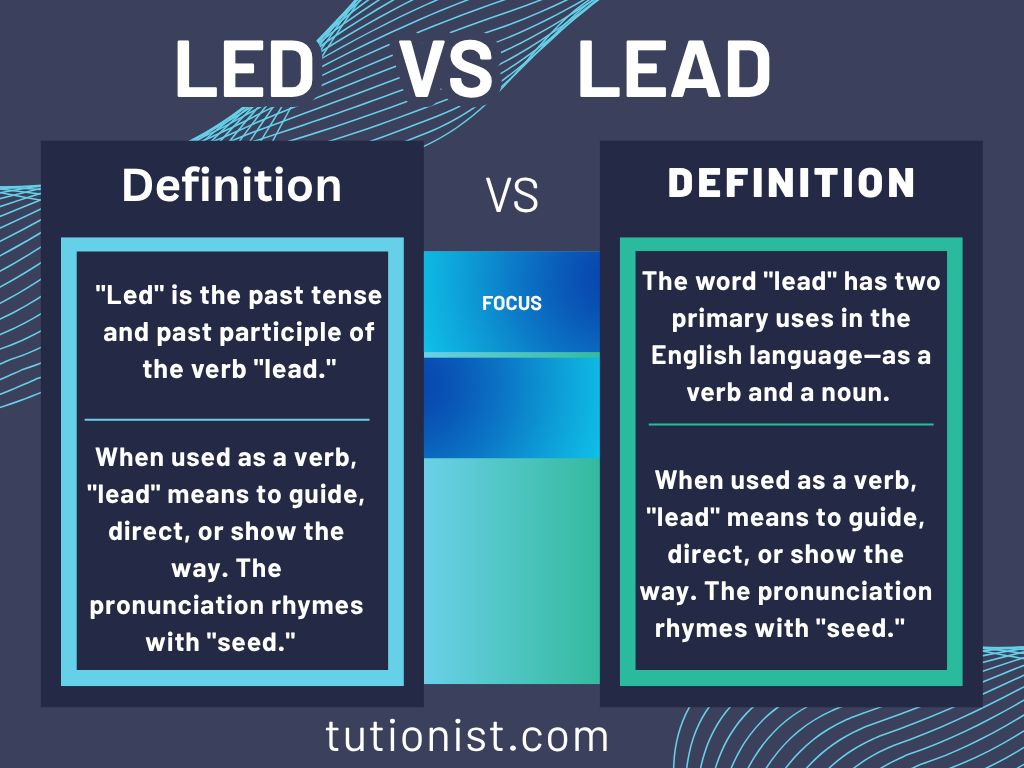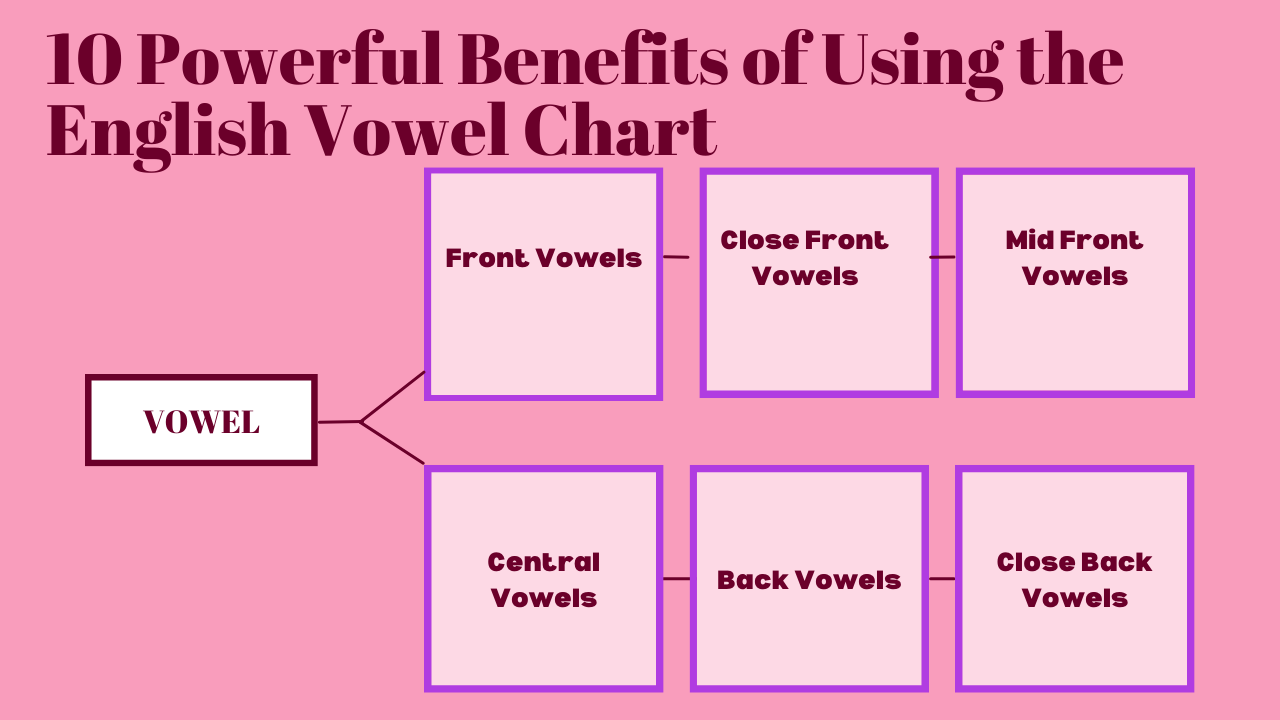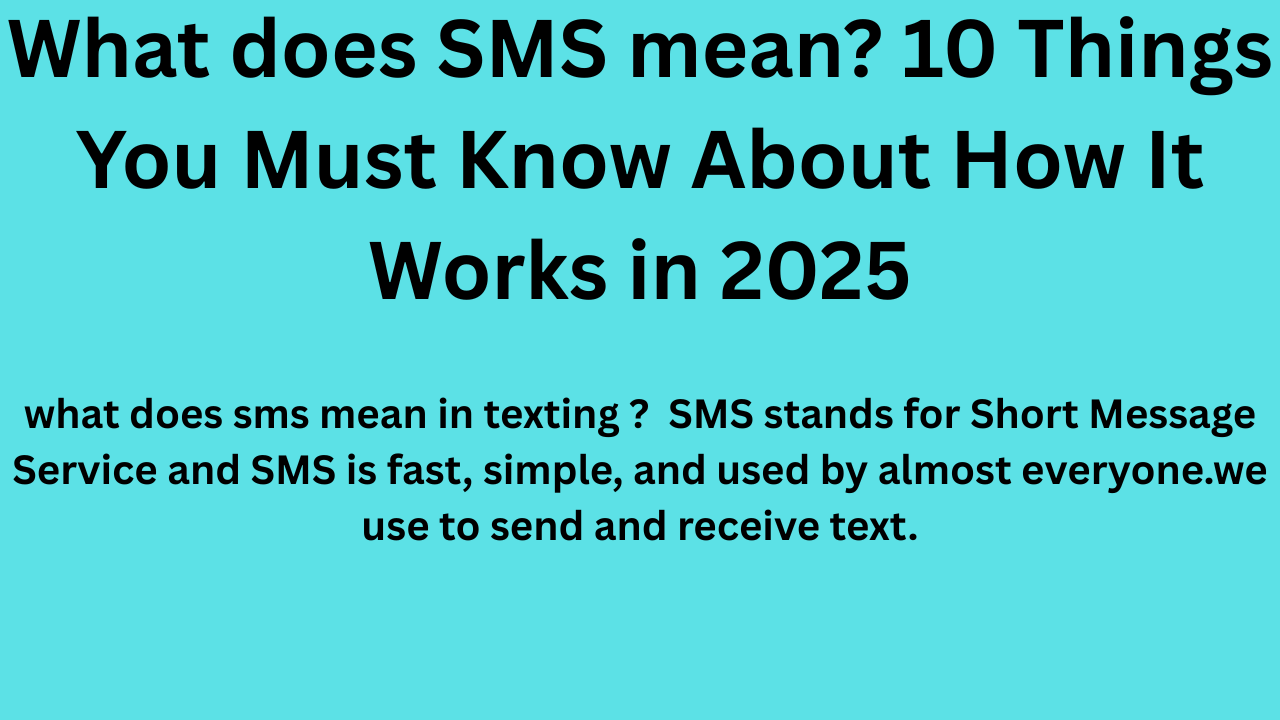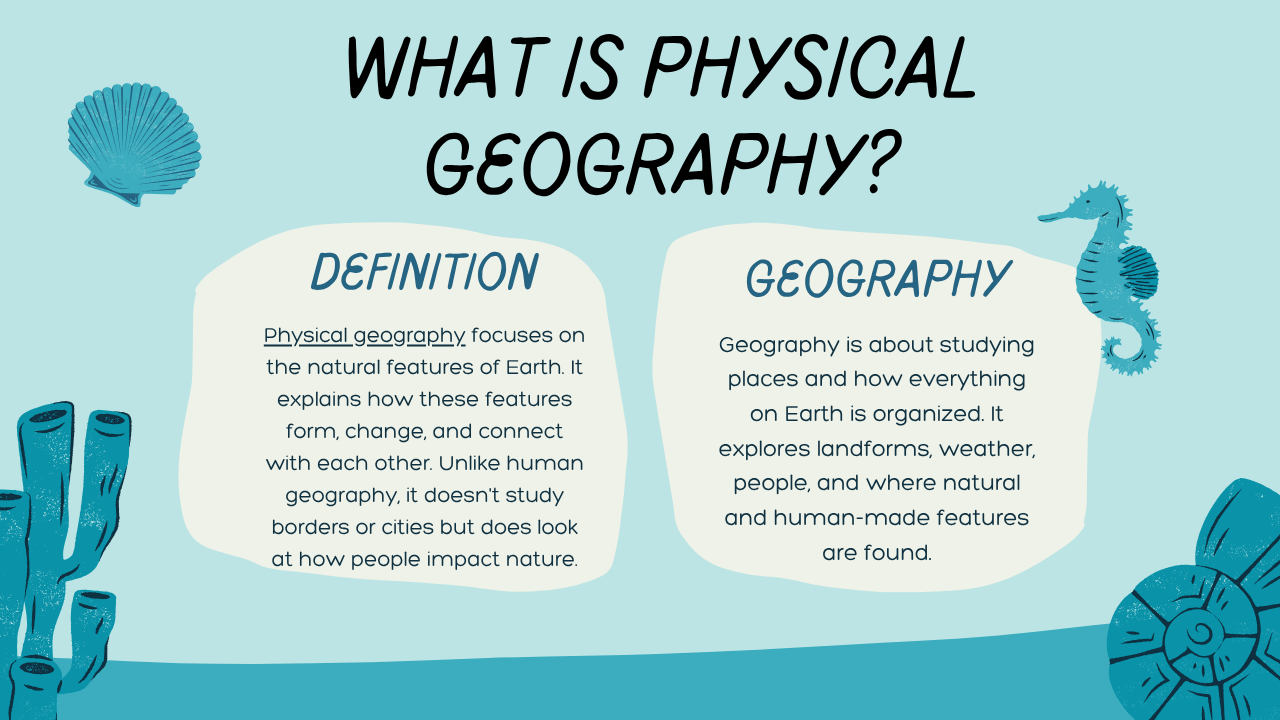Confused about led vs lead? You’re not the only one! These two words may look similar, but their meanings and uses are quite different—and mixing them up is a common mistake.
Here’s a simple breakdown to help you understand led vs lead:
- “Led” is the past tense of the verb “lead.” You use it when talking about something that already happened, like “She led the team to victory.”
- “Lead” is the present tense of the same verb, as in “I will lead the project.” It’s also a noun for a type of metal (yes, the one that’s toxic).
By the end of this post, you’ll be able to tell the difference between led vs lead with confidence—and never mix them up again!
What Does “Lead” Mean? (Understanding It in the Led vs Lead Debate)
The word “lead” has two primary uses in the English language—as a verb and a noun.
1. “Lead” as a Verb
When used as a verb, “lead” means to guide, direct, or show the way. The pronunciation rhymes with “seed.”
Examples:
- He always tries to lead the group discussions.
- Will you lead us to the park?
2. “Lead” as a Noun
When used as a noun, “lead” (pronounced differently, rhyming with “red”) refers to a type of metal or an element (chemical symbol Pb). Additionally, in writing or journalism, “lead” can mean the introduction or main story.
Examples:
- The weights were made of lead.
- The article’s lead grabbed everyone’s attention.
Summary Table for “Lead”
| Usage | Meaning | Pronunciation | Examples |
|---|---|---|---|
| Verb | To guide or direct | Rhymes with “seed” |
| She will lead the project. |
| Noun | A type of metal OR the main part | Rhymes with “red” |
| The pipes are made of lead. |
What Does “Led” Mean?
“Led” is the past tense and past participle of the verb “lead.”
When you’re describing something that has happened in the past, “led” is always the correct choice.
Examples:
- She led the team to victory last year.
- The tour guide led us through the historic ruins.
Common Mistake
Remember, “lead” is never correct in the past tense. For example, “She led the meeting” is incorrect. The right sentence would be, “She led the meeting.”
Differences Between “Led” and “Lead”
Here’s a clear breakdown to settle the confusion once and for all.
| Term | Part of Speech | Time Frame | Example Usage |
|---|---|---|---|
| Lead | Verb or Noun | Present/Future |
| She will lead the team. |
| Led | Past tense of “lead” | Past |
| She led the team yesterday. |
Memory Tricks to Avoid Confusion
Need easy tricks to differentiate between “led” and “lead”? Try these strategies:
- Think Past = “Led”.
Whenever you’re describing past actions, “led” is your go-to word. For example, “She led the charge.”
- Pronunciation Check.
-
- When writing about guiding or directing, “lead” (verb) rhymes with “seed.”
- But in the past, “led” sounds like “red.”
-
- The Metal Test.
If you’re thinking about the heavy metal (Pb), you’re likely talking about “lead” (noun).
Common Mistakes and How to Avoid Them
Mistakes with “led” and “lead” can be confusing, but they’re easy to fix. Here are some examples of errors and their corrections:
- Incorrect: She led the group yesterday.
Correct: She led the group yesterday.
- Incorrect: He will lead the group tomorrow.
Correct: He will lead the group tomorrow.
Tips to Avoid Mistakes
- Always check the context of your sentence (present, future, or past).
- Use the summary tables in this blog as a quick reference guide!
Test Your Knowledge with This Quiz
Feeling confident about “led” vs. “lead”? Test yourself!
- She will ___ the meeting tomorrow.
a) led
b) lead
- He ___ the way during our hike last weekend.
a) led
b) lead
- The company needs someone to ___ its expansion strategy.
a) led
b) lead
Answers:
- b) lead
- a) led
- b) lead
How did you do? If you got them all right, congrats! If not, feel free to revisit the sections above.
Master “Led” vs. “Lead” with Confidence
Differentiating between “led” and “lead” doesn’t have to be confusing. Focus on the context of your sentence and remember these key points:
- Use “lead” (verb) when talking about guiding or directing in the present or future.
- Use “led” when describing the past.
- Please pay attention to how the words are pronounced to determine their meaning in context.
By understanding the definitions, rules, and examples shared in this post, you’re already on the path to mastering these common English words.
Are you looking for more writing tips to improve your skills? Subscribe to our newsletter for regular updates, exercises, and resources!
External Resources
Grammarly – Commonly Confused Words
Merriam-Webster Dictionary – Lead vs. Led
FAQs
How do I remember when to use “led”?
Think of “led” as only referring to past events. If the action you’re describing has already happened, “led” is correct.
Is “lead” or “led” correct in the sentence, “She ___ us yesterday”?
The correct word is “led,” as the action took place in the past.
Can “lead” and “led” have the same pronunciation?
No, they are pronounced differently. “Led” rhymes with “red,” while “lead” (verb) rhymes with “seed.”
Read Also : Indirect object pronouns Spanish made simple
Understanding the difference between led vs lead doesn’t have to be confusing. Just remember: “led” is always the past tense of the verb “lead,” while “lead” can refer to a present action or a type of metal.
By learning the meanings, seeing examples, and practicing, you’ll be able to spot the difference between led vs lead easily in everyday writing. Now that you’ve got a clear picture of led vs lead, you can write with more confidence and avoid one of the most common grammar mistakes!







